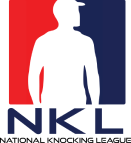Speaker 1:
D2Con is right around the corner with Mastermind Day, January 16th in Salt Lake City, Utah with Tim Grover, Author of Relentless and Michael Jordan’s coach.
You also have a marquee speaker in former NBA all-star, January 17th and 18th at the salt palace in Salt Lake City, Utah. I’ll tell you of Ed Mylett, Coach Burt, Tim Grover, and many more famous speakers and workshops on how to improve your leadership, sales and recruiting. Register today, D2D con.com for D2Dcon. New users, we have a DVD you after-party Friday night. Don’t miss out. Pre-register at D2DCon.
Speaker 2: (00:43)
All right everybody, this is Sam Taggart, your host with the D2D podcast and and we are here with Tim Grover, the author of Relentless, and he’s a sports enhancement. We don’t like the word trainer because really it doesn’t just train people. He changes their body, their soul, their mind to become the top performers, right?
Speaker 3: (01:05)
Yeah. So you know what, it’s kind of like building something. It’s like an architect. You know, you have to sports architect, you kind of pay attention to everything. You pay attention to the physical, you pay attention to the mental, you pay attention to the nutrition, you pay attention to every single aspect. You draw the plan out. And then you have to get a team and you have to implement the plan either by yourself or whoever else you have around you to get that end result. So it’s just to say it’s no different than building a successful business, building a beautiful building, building a successful relationship. There has to be a plan, there has to be a design, there has to be thought. You put it down on paper, you draw it out, you implement it.
Speaker 2: (01:46)
Love it, love it. So do you, so tell us, I mean I’ll give you them a little like background cause some people might not know who Tim Grover is. So, um, trained Michael Jordan. Yeah. The people I knew to know who Michael Jordan and Tim Grover, all we’ve had, he’s had a few moments out of it. He’s going to say, I was like, okay, so you have the K 97, was it Brian Russell or Byron Russell? He’s sitting here, um, does a push we push, it was a push, not a push, depends on the angle. This was clearly a push and you after told Michael Jordan to push Briar and Russell on the foul line to win a game winning shot. So that we don’t want to, I mean this is a historical moment for the jazz are only one shot of her only one NBA team of her only moment of ever having a good team. I mean, we have a good team, but I mean I’m talking an all star team, Michael Jordan, just, I was, I was a depressed young child at the moment. I was very, I was very depressed. Um, so yeah, so train Michael Jordan, Dwayne Wade, Kobe Bryant, uh, and, and many other professional athletes and you know, to just be able to rub shoulders with those guys has got to feel kind of cool, you know?
Speaker 3: (03:03)
Yeah, it is. But you know what? The thing that allowed me, I was never starstruck person. You know those people like it’s funny when they look to hire somebody, they want somebody as obsessed as they are because they’re like, they’re so focused in on what they’re doing. They need somebody else to kind of take care of whatever else there was whatever else responsibility is to get them to that next level. So I was the individual that allowed them to focus in and pay attention to their basketball, to whatever they needed to do to get that end result. And it was a psych, okay, your job is to handle this, this and this. That way I don’t ha, I don’t have to worry about it and I need you to handle it at the highest level. Just the way I handle my practice. I handle my game preparation, I handle the end result. I need you to be just as just as obsessed and just as crazy about it as I am.
Speaker 2: (03:57)
Love that. Love that. So what, like let’s, let’s like rewind a little bit to like little Tim Grover, like little you, you know, you’re, you didn’t come from, you kind of had a cool story, an immigration story, like, you know what I mean? So, you know, back up to you coming over to America. Um, where are you originally from?
Speaker 3: (04:19)
Um, I was born in London, England, but my parents are Indian.
Speaker 2: (04:21)
Indian, yes. Come to the States. At what age? I was four. Four. Um, and your dad was a doctor? Pretty well known. It was pretty successful outside of she was, and then comes to the States and this American dream, right?
Speaker 3: (04:37)
Yeah, he just like, as, as successful and as things were back home in India, he said, I, there’s, there’s more, there’s, there’s something better out there for myself and my family. And he chose this, he chose the States and my mom was a nurse and back in Chicago and in that time in the, you know, late sixties, early seventies, there was a huge, ah, nurse, nursing shortage, indifferent, indifferent, Dawes in different cities and in different States in Chicago was one of them. So my mom was able to get a job. She, so she was actually out in Chicago two years before we even, we even got out of there. So my AA was just my dad and my brother. We were back in it. We were actually in London, England at that time. And so he was raising us, my brother and I by himself. And then when she got established and found a place and got her feet, got everything going, my dad decided to make the transition for my brother and myself to come here.
Speaker 3: (05:37)
And you know, we came here and you know, people know about the taxi story where he ran out, ran out of money and just like aired every last Saturday. Addy told the cab driver stop right here and like, you know, kids, we didn’t know what was going on and if we found out later that that he didn’t have any more money. So he gave, took the cab as far as you can. So we get out of the car and you know, carrying the suitcases and backpacks and whatever. Remember back then the suitcases did not have wheels and it wasn’t like we were dropped off around the corner where all we were dropped off the quite a distance, quite a distance. But you know, you figure it out and when you see people do stuff like that it, you know, people say you don’t have a rim, you don’t remember stuff from your childhood.
Speaker 3: (06:24)
There are certain things that happen that are embedded with you forever. And that was a memory that’s just been embedded in me from all time. Just to see an individual basically give up everything he had start all over and come here and decide to be more successful than he was in the past. And you just see stuff like that. And what’s crazy about that is he, we’re not, there’s nothing special. It’s just like people like, Oh, you’re gifted orient. No, it’s not this. These are ordinary people doing extraordinary things. And that’s what’s crazy about this is when you look at the athletes that I’ve dealt with are, yes, they were gifted from a physical standpoint, but they were still regular individuals that had to Excel to get to where they were at. So the same mental mindset that my father had that Michael had, Dwayne had, Colby had, everybody has that ability. I don’t care what you’re doing. Everybody has that ability
Speaker 2: (07:27)
and you have, you have this quote that’s the road to paradise always starts in hell. And I think that it kind of probably goes along with that, right? Like,
Speaker 3: (07:36)
yeah, the Ellison is the road to paradise starts in hell, but it doesn’t mean you have to stay there. It doesn’t mean you have to stay there. But the most successful ones, they go revisit it because that’s what toughens them up. They understand this, they understand the struggles. They like to go back and feel what it, what it was. It’d be like an individual who, who makes, it’s as a success in their business or as an athlete that likes to go back to their hometown and see where they grew up. And understand and still do though, still do those same things. So where I said, you still have to remember that fight and you have to, you have to train and you have to prepare yourself as though you, you got out of it. But if you stop doing what you’re doing, you’re going to get pushed back in there. So you have two options. You can either visit it as a success or it’s going to come visit you again because you didn’t do, you didn’t continue to do everything you did to get out of it. So at one point or not, you’re going to have to visit hell again at some point.
Speaker 2: (08:45)
I love that. And what, like do you feel like people that are unwilling to go back and visit their hell, that’s one of their biggest roadblocks, to really take their game to the next level. Huge. Huge.
Speaker 3: (08:56)
Because it’s what happens. You forget what you did to get there. That’s what individual had. They get complacent. They get, they relax. All right? They get comfortable. You know, it’s, it’s an anything, it’s an, you know, taking your next level. Um, if you’re a salesperson, if you’re in a relationship, you know, remember how if you are in a relationship, I use this as an example all the time. What did you do to get that significant other? All right. And now, once you’ve got that significant other, you don’t do that anymore. And the people understand, well, why is this relationship not working anymore? It’s the same thing if you’re trying to advance in business, sports, whatever it is, whatever you did to get the how hard you work. You know, it’s funny you have these athletes, the greatest individuals that I’ve trained that I’ve been around, that I’ve got a chance to study. They practice and play as though they’re going to get cut that day. Like they’re not the superstars. They’re like, they pray in practice. Like, I, I’m not, if I don’t do this, I’m not going to have
Speaker 2: (10:03)
stop being like, I made it now I gotta be, I got that title, therefore I just get a coast now.
Speaker 3: (10:09)
Yeah. So I have a saying and I, you know, I talk about this in a book, relentless. It’s funny when individuals come up, professional athletes, when they get a chance to shake the commissioner’s hand at the draft, and I said, congratulations, this is the end of your career. Because most individuals, I’ve made it, I’ve exhaled and like, Oh, I’m finally here. It’s just like when you get that job where you become a partner in your company or whatever. All right. Do you think, is that where you think all the pressure’s off of, you know, that’s where the pressure really excels and that’s the difference between somebody that likes, continues to grow and wants to get better than never. They’re never satisfied. They’re always obsessed with wanting a little bit more. You know, there’s a great story in the book where usually after every draft, when an individual gets drafted, somebody usually throws him a big draft party.
Speaker 3: (11:04)
You know, there’s this big hoopla. Everybody goes on, all you made it that everyone celebrates and all this other stuff. Colby Bryan at age 17 at 17 the day he got drafted, he didn’t have a draft party. He went and worked out wow. At age 17 then people want to know why he won five championships played in the league for 20 years. There’s always a reason for your success. There’s always a reason for your failures. If you look far enough and you’re willing to look deep inside yourself and deep into the individuals you’re surrounded with, you will understand why you are in either your current situation or your successful situation or you can’t get to your next situation.
Speaker 2: (11:55)
I love that and I think a lot of people, you know, we always hear those quotes of like, Hey, Colby was in the gym before practice and after practice. Michael Jordan was the guy who was it? It was, I was interviewing Marcie and I think, and he was, I was asking him about Michael Jordan and he’s like, dude, it was mind blowing to watch how like just resilient the guy was where you’d find them shooting hoops after the game. Like, you know what I mean? Just like, what are you, what are you doing, Michael? Like you won. Like the game’s over.
Speaker 3: (12:26)
Right? But , you know with him was, it wasn’t like if, if I, I played this excellent game, but now if I don’t, the next game I play regardless who the opponent is, if I play the same game the same way, it doesn’t guarantee me the same result. If I play the next game better than I played this previous game and I didn’t make the same mistakes, my chances of the next result being a victory are better. And you know, you’re in a big business of training individuals to be door to door individuals, you know, to go in. It’s the same mindset. If you knock on one door and let’s say you do close the deal, right? If you knock on that same door and you go into it with the same mentality, you’re not going to close that deal. Your mentality has to be elevated. It has to be at a higher, it has to be at a higher level. So that’s why I said there’s no difference in what is a sales individual as a greatest athlete. You can train the same way. It’s, people always say, you know, he’s the first one there. My athletes were the first ones at the gym and the last ones to leave.
Speaker 3: (13:45)
That’s a key component of success in every business. You, most successful individuals, they’re always the ones first at work, staying late. No how to uh, how to stay focused. You don’t have to tell them these things. They already know it. They already know these things. You know, there’s a big thing now you see where, um, come on. Pro athletes, the social media, they’re always posting stuff about them working out. You’re a pro athlete. Aren’t you supposed to work out? I mean, seriously, isn’t this your job posting something you’re supposed to be doing? You don’t make the gym. Yeah. I mean like of course you shouldn’t be at the gym. Yeah, exactly. Exactly. I’m like, wait a minute. So people used to ask me, Oh, give me one second. And asked me about, you know, why Colby? You know, there wasn’t a whole lot of social media when Michael was in it when Colby came out. Those little bonuses. Well, why don’t you post stuff with him? I was like, listen, it’s not a story that Kobe’s in the gym working out, training, getting himself ready. It’s a bigger story. If he wasn’t. So if I was Lily posting stuff of him working out all the time, it would literally be four or five posts a day. It’s, it’s a bigger story if I didn’t post anything. So I was like, why does an individual, these individuals, they’re so successful, they don’t want accolades for stuff that they’re supposed to do.
Speaker 2: (15:09)
Love it. And I think in this job we see that a lot. We see guys like, look at me, I’m out knocking. It’s like, yeah, that like you, why would you post that? It’s like your validation of doing what you’re supposed to do. Yes. And I think we could relate that so well to what we do because I see it all the time. They’re like, yep, got out in the cold today. Went out, knocked, you know, it’s a, it’s 30 degrees. You’re like, and uh, w w, w w what if it was 22? Would you like, what have you would have that changed something? Right? Where are you not going to go to work today? Just cause like,
Speaker 3: (15:44)
actually when the weather is bad, see, now the mentality is when the weather is worse, there’s going to be less people knocking doors. So you have a more advantage to knock on more doors and to get that end result. So instead of out there putting it out
Speaker 2: (16:01)
that you’re out there, you should just be out there doing it. And at the end of the day, you should, if you want to put down my five. Yeah, exactly. It’s like that. That’s, that’s what it is. Thank you. Thank you. I love that. So what, okay, so other than that, ours are doing the work. I think there’s also a difference of why people pay you so much more money than pay, like the dudes at Gold’s gym to be their personal trainer. There’s gotta be a difference in your ability to kind of be this sports enhancement. And I think that a lot of people, they struggle, they’re like, I’m working harder than everybody else on my team. I’m working. I am putting in that work, but I’m not even getting the result that’s better than them or I’m not, I can’t seem to have the breakthrough. I can’t seem to figure it out.
Speaker 2: (16:44)
So I think I want to talk on like the actual training aspect, like the intentional improvement because there’s that quote that you have that’s Michael Jordan, Koby Bryant. Both of them made sure they came back better the next game or the next year. And I think a lot of people in this job, they get complacent. But I think there’s also a level of intentional training and investment in themselves that that shows true improvement. So like speak to me on that for a minute. Like what? What does a trainer as a, as a mentor helping these kind of high performing athletes or individuals or relationships or whatever you’ve coached on, what, what, what do you do or what would you recommend people watching or listening to this to, to be more intentional about what they’re training on or what they’re doing to get better?
Speaker 3: (17:30)
Well, one thing is, listen, hard work does not guarantee success. That’s why I got tagged body. All right. Hard work does not guarantee success. Now work, not working hard guarantees you’re not going to have success. But everybody, there’s a lot of individuals that are outworking heart. Are you working hard on the right things? Are you hard on improvement? Are you investing in yourself? Are you investing in your client? I would spend so much money talking and just getting on planes and just going to different conferences and so forth. Just so my athletes would have the competitive edge. So I would have that competitive edge. So you’d gotta be, you know, and it’s not, most individuals they, they talk about, it’s the investment of the money. You know like, Oh, I’m not going to invest $200 in this conference so I’m not going to pay to go here.
Speaker 3: (18:23)
You’re looking at it totally the wrong way. It’s not the money, alright? It’s the time. That’s what you’re investing in. It’s you have to invest your time into something you know that’s valuable. Forget about the dollars. You can always make more money. You can figure out how to get $200 all right? You can’t figure out always how to get more time. How do you get more time? You invest in yourself in the things that matter to get that end result. That’s, that’s the different people don’t want to invest in themselves any more. They have every single excuse. If how can you invest in your product? How can you invest in becoming a better door to door individual if you’re not in willing to invest in yourself? How do you get better? By investing in yourself, by investing the time in new yourself. Don’t look at the dollar situation. That dollar situation will come. All right. Vest, a time in the right things, the right attributes, the right weaknesses that you have that will get you more success down the line.
Speaker 2: (19:39)
I love that. So knowing the lineup, so Tim Grover speaking at door to Orrcon and super excited to have you there. Thank you. Also helping with their mastermind day, which is the first day, it’s for more of an exclusive audience and you know, he’s going to be really kind of one-on-one, more intimate coaching there, which I’m excited for. So if you haven’t got your mastermind ticket, make sure to upgrade to that. But um, I, I guess you knowing the lineup coach Burt, ed, my let you others speakers that you know there. Um, what would you have to say to anybody that maybe is on the fence that’s sitting there going on and off onus bone for a plane ticket and a couple of hundred bucks and this like, what would you, what would you tell that person like with that mindset? Cause I guarantee the people think that people think that,
Speaker 3: (20:22)
first of all, I hate that expression on the fats are make a frigging decision already be on one side offense or the other side offense. If you’re on the fence, okay, somebody else is going to Teeter you off that fence and they usually Teeter you in the wrong direction because you’re afraid to make that leap. It’s like when you go to a swimming pool and you put your foot in the water, the water’s fricking cold. It’s cold. You come back 30 minutes later, put your foot back in. It’s still gold. I either jump in or go back to your rule. Yes. Hi. So stop teetering cause you know why? If you’re teetering on the fence are you’ve been teetering your whole life about every single decision you’ve made. All right. For the first time, make a commitment in yourself, the lineup alone, the lineup alone.
Speaker 3: (21:12)
If you look at the three speakers that you met, forget about even me, just Michael Burt and ed, my let I take me out of the equation. That should be enough to make you jump on. That. Should be enough and if you don’t have time for a plane ticket, get in the car. People figure things out. Yeah. That’s the ability that you know what people that Teeter don’t figure things out. I’ve had so many individuals show up at things and just say, listen, once I get there, I’ll figure it out. Love that and what? What? What is the difference between an individual that’s super successful? The one that’s somewhat successful and the one that’s not successful? Right. The one that’s super successful figured things more things out. The one that’s not quite as successful, they didn’t quite figure everything out. The one that’s not successful at all, they haven’t figured anything out or people look at, they want it, they want the perfect plant. You can write out the perfect plan and I guarantee you it’s never going to go that way. I’ve written out these elaborate workouts where I’ve studied individuals methodology, different analytics. For six months I got into the gym. The first exercise I did with a client, I was like, this ain’t working.
Speaker 4: (22:41)
Yeah,
Speaker 3: (22:43)
that’s it. This ain’t working. All right. Successful people, they make decisions. They commit and they act. That’s the difference. Make your decision to be here, commit to it, act on it. And you will see where when you invest your time, what the end result will be.
Speaker 2: (23:09)
I love that cause cause you know, you talk about you trained Michael Jordan, I mean the F that point in and of itself, right. Why would Michael Jordan the greatest of all time pay somebody? And I’m sure you weren’t cheap. I’m sure you weren’t like, Oh it’s a hundred bucks a session. Like a difficult training. Um, I’m sure he paid pretty penny to say I need help. Tiger woods coach, you have Kobe Bryant, a coach, you have all these athletes or all these business leaders. I mean think how many business and have businesses ever hired you to say yes, coach my mindset? Yes, 100% and they’re probably paying a pretty penny to say we’re humble enough that we need to get better and learn. And I see that so often in our industry. People just say, Oh, I need results spoonfed to me. And they need to just somehow read a book and be amazing and get amazing results. But it’s like, no, you’ve got to truly pay the professional. You’ve got to pay the coach, you’ve got to pay the you gotta, you gotta pay to get trained. You’ve got to spend the time and the money and be willing to take that and see an ROI. Maybe two, three, four years down.
Speaker 3: (24:17)
It’s an investment. That’s what I’m trying to think of people that you’re thinking short term, it’s an investment. All right, and here’s the thing. You have individuals, when I work in with these elite athletes, or you have these people that are working with these, you know, highly successful business people, do you know how difficult it is to show a 1% improvement in an individual like a Kobe Bryant? 1% you know they’re not looking for, they’re not, you’re not going to elevate their game 50% or you’re not going to increase that. So they’re already sold. So imagine the commitment that they have to put in an, I have to put it in my work to show that 1% I you getting a chance to come to this conference and I guaranteed by just shaking hands of other individuals who have committed to this. You’ve already elevated your game 10%
Speaker 2: (25:21)
it is mindblowing and it’s funny that you’ve never been to the conference yet and you don’t even know our industry as well. You know yet that you’ve said that because you know what I mean? People would send me messages on Instagram or Facebook that are like, dude, just by knowing that people are doing a thousand pest control accounts or 500 alarms or you know what I mean? In in their world. Just meeting those people, they’re like, Oh, I thought I was really good doing a hundred like it just it. What it did is it put an arena together. It was like, Oh, I got to shake hands with guys doing 10 times the volume I am, or businesses that have, they’re like on the shows we did 10 million and then you go meet a company. Did 500 million and you’re like, Oh yeah, there’s a whole nother level.
Speaker 3: (26:00)
There’s always another level. This is your chance to be in the room with those people. That’s what I’m saying is, is a chance to, to ask questions, ask questions to the panel to ask questions to the speakers, to ask questions to people who are doing stuff better and a bigger volume that you are, they may have an answer that you’ve been looking for and a five minute conversation with them. He’d be like,
Speaker 5: (26:28)
and even think about it.
Speaker 2: (26:30)
hundred percent so let’s talk about, let’s talk about the training aspect. So you, Michael, you’re not a, you, you played ball, you play, yes I did better than Michael Jordan though.
Speaker 3: (26:40)
No, nobody played basketball better than them. So
Speaker 2: (26:44)
you’re a basketball player. So you had a little bit of knowledge of the game, obviously. What makes you worthy to coach a or train a, you know what I mean? A lot of people get into the mindset of, well, you know, he isn’t a better basketball player than me. Why would I pay him to be my trainer? Does that make sense? Like it does. I think a lot of people have that
Speaker 3: (27:03)
it does by H. here’s the thing, if you do that, you’re closed minded to new information. And the one thing I’ve learned, the greatest athletes out there, they’re always willing to learn. They always want to get better. But they know the difference between an individual that’s given them BS, then individual that actually knows what they’re talking about. So with Michael, it was a psych. I gave him the plan of what we, what we were going to do from a pheasant from a physical standpoint. I say, listen, because you had to sell Michael. And I didn’t, I didn’t know I had to. But I, you know, I sat there, I told him, I said, Hey, listen, let’s address these things first. And my thing was like, listen, everybody’s taught when you come into the training business, everybody’s talking about, you know, uh, faster. You know, they want you to be faster and faster and stronger.
Speaker 3: (27:57)
You know, by talks about speed. We want you to be faster. We want you to be stronger. We want you to be more explosive. I came to him at a different way. I just like, well, I noticed you have nagging injuries that always, I said, let’s address those things. I said, by just addressing those things, what’s going to happen? You’re going to be better. You’re gonna be stronger. You’re gonna be faster. You’re gonna be more explosive by just addressing the things that aren’t allowing you to maximize your full potential. What are conferences, what a conferences like this put together for to help you maximize your full potential?
Speaker 2: (28:33)
Find those little nagging things, the nagging injuries that keep bugging you. I can’t recruit. I can’t, you know, I can’t seem to overcome these objections. I can’t seem to, you know, manage my time. I’m ma, I’m in over my head. I can’t grow like it’s, that’s a nagging injury,
Speaker 3: (28:47)
right? So I said, let’s address those. Once we addressed those things, you’re automatically better then. Now, once we’ve addressed those things, now we’ll work on the other stuff on making you faster making you may be able to jump higher, you know, making you more explosive, making you stronger. But let’s address what’s right now that we can show immediate results that are going to show immediate, immediate results. And we did that relatively quickly. I said, give me 30 days to show you what I can do in 30 days turned into fit into 15 years. You have to be able to put yourself out there and back up what you say. Yeah. You know, most people are willing to stay. They put themselves out there, but they don’t have the ability to back it up. They don’t have the training, they don’t have the knowledge, they don’t have the tools, they don’t have the investment. They didn’t, eh, they didn’t invest enough time in themselves to actually back up what they’re trying to train on, what they’re trying to train on and what their goals really are.
Speaker 2: (29:47)
And do you know how often that happens in our industry? So we’re in a high recruitment industry, much like the network marketing business where it’s very competitive. It’s very, come work for my company to come work here. We have the best, this, that, and then whatever. Right? And what happens a lot of times is this management or these guys are saying, Hey, I’ll be your trainer. I’m giving you training, I’m giving you management leading you, but they’re really not able to pull the greatness out of every one of their reps. and I think that as a leader, if you’re listening to this or a manager or an owner or whatever, trying to lead your people, you’ve got to look at yourself as almost like they’re investing. You know your reps and people are investing their time and energy into you. You’ve got to be the guy that say, I can back up what I say. I come back up like, why you should work here and keep earning your reps business every day just like you’d be earning Michael Jordan’s business for 15 years. It’s, I guess what advice would you give to that leader, that mentor, that manager that’s trying to pull the relentlessness, trying to pull the greatness out of their salespeople? What advice would you give that guy? That’s like kind of their trainer in a way. You know what I mean?
Speaker 3: (30:56)
Pay attention to the details because you, you can put everybody, when you start off, it’s funny whether you’re sales or wherever it is, you put everybody in the same pool and then all of a sudden you’ll see how certain people react differently to certain situations, to the way you talk to them, the way you are, the way they react to success, the way they react to failure, how, how resilient they are, and you have to be able to look at that individual and then give them, give them selves, break them into a smaller group and say, Hey, listen wheat we see these are your weaknesses. This is what you need to work on. This is what you need to work on. And you can’t talk to everybody the same. You can’t talk to everybody the same way. Everybody handles criticism. Everybody handles feedback in a, in a different way.
Speaker 3: (31:45)
You have to pay. You have to invest your time into these, into these individuals as individuals. And I know it’s a lot because there’s a lot of that. You know, you may have hundreds of people, but if you can find one factor about each individual and how it relates to them being successful, it could be something that’s they’re dealing with in a family situation, something that’s happened to them from a competitive nature. Um, what, whatever it went, whatever it is, you know, whatever’s led them down this path and now they know that you’re more to them than just a individual who’s paying you to train them. You’ve actually invested your time into something that’s more important to them. Where from a per, from a personal standpoint where you can actually really help grow. It’s like paying it, paying attention to each end of each individual as an individual.
Speaker 2: (32:44)
Love that. Because so often we just pay attention to you. Have you sold or have you not sold today? Right? Like that’s so it’s so surface level there to where they’re not looking at what’s that deeper personal aspect of that guy’s life to say, how do we pull success out of him as an individual, not whether we just sells or,
Speaker 3: (33:06)
right. And that’s, you know, it’s, here’s, here’s a thing. I will say most individuals are, they’re afraid of success, they want success, but they’re afraid of it because they don’t want, they want, they don’t want to keep paying the price that comes with success. It’s easy to look online and see somebody driving the cars, having the nice house, doing all that other stuff, but they don’t understand the amount of payment. And I’m not talking about from a dollar standpoint that they have to keep doing in order to maintain that level of success, that commitment, the S you know the BS you have to put aside the free time that goes away cause everybody wants to, you know, they’re like, listen, yeah, I want to do what he’s doing, but you know what? I still got to have my Thursday, Friday and Saturday nights to hang out with my boys and go out and party
Speaker 2: (33:57)
and then my video games. I need my this, I need my this.
Speaker 3: (34:00)
Right. Okay. So what happens? You started negotiating with yourself. So once you start negotiating with yourself, you lose your ability to start negotiating with other individuals because then you start talking yourself out of stuff.
Speaker 2: (34:13)
Nugget nugget, no and that, and, and think about that from a leadership standpoint, from a results standpoint, from a, you know, in your book you talk about the difference between, and we haven’t really talked about this at time, but the cleaner, the closer and the cooler. Yes. And it’s like the cleaners are the ones that are probably willing to not negotiate with themselves. It’s not negotiable. They create non-negotiable rules that say, Hey, I will do a set of 20 or I will do, I’ll run five miles. Like, and they’re not, or whatever the number is or whatever the, the level of work or whatever that is. And they don’t negotiate with themselves. Right. I love that. And the more you can negotiate with yourself, the more that you can’t negotiate with others.
Speaker 3: (34:53)
Exactly. So you know, when my guys are working out and you get people always, they were trainers all say, well what’s the mall? What’s the most important rep? Is it the first rep? Is it the rep six? Is it the last rep? It’s as though, you know, every rep is important. Every rep is though the cleaners. Every rep is important. Every door you knock on is important. I know it’s a lot harder to knock on door 50 or a hundred how many you do on a particular day than it is, but the same enthusiasm you have knocking on that first door and how you knock on that door or ring the bell or how you stand, how how people when they first see you now you know is are you when you get up in the morning and look a certain way and then 20 doors later, okay, now your heads down, now you have the wrong bar.
Speaker 3: (35:45)
You know you’re not okay. I’m like, I’m not letting no listen. You gotta be, you have to show the same enthusiasm. So it’s just like listen, the same mindset you have when things are going well, you have to have the same mindset when things are not going well. So if you knock, if you’ve knocked on 10 doors and you got 10 nos today and yesterday you knocked on 10 doors and three of them said yes. The same mentality applies all the time. The relentless mindset applies all the time. Every rep is important. Every rep is important, every knock is important. Every doorbell you push is important. Every greeting, every handshake, every presentation, everything is as important. You talk to the individuals that you said that do 100 million or 500 million, the 500 million was to say what? What’s difference? We pay attention to the details. We pay attention to the details that nobody else thinks is important.
Speaker 2: (36:47)
Love that. So man, I’m, I have like goosebumps right now. Listen to this guys. Cause he’s a guy that doesn’t come from our space, doesn’t come from our background and he’s literally like hitting it on the head. I mean if there’s one thing you could teach somebody, it is that. And I, I appreciate you for, for saying what you just said because I’ve been trying to beat this into people’s heads for the last 15 years and it’s like every door, you don’t know who’s behind the door. You don’t know when’s your next deal. And if you show up, given a half ass rep and all of a sudden that was a potential deal. That could’ve been your one deal that you got that day, but you messed it up because you didn’t not get as important as you did the first door you knocked that day. So I love it.
Speaker 3: (37:31)
It’s like tea. It’s like when my guys take the shot, they shoot every shot as though it’s going to go in. I every shot isn’t going to go in, but every knock on the door has to be as though the shot is going. Yeah.
Speaker 2: (37:46)
Love that. Um, okay, so we gotta we’re, we’re low on time, so I wanna I want to kind of do a rapid fire question that I just would be fun. This is more just like quick answer. I, I’ve had these questions, I’m sure some of you guys have. Do we have any other questions on the Facebook thread that have come through? Let me know. Um, so if you have some questions, I maybe would take some from the, from the Facebook live. So, um, and I, and, and you can say pass. If this is too loud. I don’t want to get political here. Who is your favorite player to work with? They like doesn’t necessarily, like everybody says, Oh Michael Jordan’s the coolest cause he’s the greatest. But like you probably had favorite people that you actually loved working with that were maybe even more from a, this gave me a lot of joy working with them. Is there, is there one that you’re like, man, I loved working.
Speaker 3: (38:33)
You know what, I treated all athletes. They’re saying, you know, having to work with Charles. Charles brought the wa he was a lot of fun to be around with, you know, tons of fun. One of the players I don’t talk about all the time is Gilbert arenas. Uh, you know, he had some issues, but Gilbert was one of the most intellectual, he was so smart about stuff other than basketball. So he could stimulate, you know, your mind in different, in different ways. Um, you know, each one brought something special. Each one brought something special. So I love work and what I would do this, what one individual brought, I was able to pass it on to somebody else. So you could probably learn you. And that was a thing. Just, you know, here’s a, this point, I don’t supposed to be rapid fire, but going back, when you knock on the door, you have to be willing to understand that you’re going to learn something from each door that you knock on. You know? So that’s, you know, those, those great individuals, not only did they learn from every practice, every shot, every game they learned from each other to love that. Um, okay, so today world, who is an athlete that you never got to coach or train with, um, that you’d love to work with in today’s world, that you kind of look up to that you’re like, man, if I could train this.
Speaker 4: (39:46)
Okay. I feel like that’d be way fun.
Speaker 3: (39:49)
I dunno if it, well, you know what, it’s not. I think the reason a lot of the athletes don’t want to get involved with me is because it’s not way fun. They’re like, I don’t, yeah, he’s way too hard on me. Yeah. It’s not, it’s not way fun because a lot of the stuff that they consider fun is actually what’s keeping them from being the Michael Jordan income. Exactly. But for you, it’s fun to watch them see success, but I mean, if you said, Hey, I could pick one athlete and I know he’s a seven right now, he thinks he’s attend, he’s a seven. Well, he could deal with tickets. I look at an individual like let’s say a Kevin Durant who’s coming off of a major, a major in resort cha. A challenge for me would be like picking a Kevin Duran, Kevin dread and not bringing him back as good.
Speaker 3: (40:39)
Bringing him back better because what you did with Dwayne Wade. Yes, because everyone always says, everyone says, you know, you, you’re never going to be as good as you were before the injury, and I agree with that statement. All right. You’re not going to be as good. You’re going to be better. Yeah. You’re going to be better in my mindset. Yeah, you’ve had an injury, but in how you handle that injury from a mindset and physical standpoint, yeah, you’re right. You’re not going to be as good. You’re going to be better. That’s how I look at it as an individual. It’s so easy to pray and green in their mind, Oh, my career shop because of this industrial injury. It’s like that. That’s the triggering mental aspect that sends them down a downward spiral. Right. And to me, an individual, I, Kevin, his best basketball is still ahead of him. Love that. Um, okay. So if you were to go back and be a professional athlete in any sport, what would it be?
Speaker 4: (41:32)
Woof.
Speaker 3: (41:33)
Race car.
Speaker 2: (41:34)
Race car. You’re a NASCAR guy. A formula one. Yeah. I love speed. Love. Awe. I love, I love speed curves and all. I was like, if I had to do it all over again, I have no fear row. I have no fear in a car. That’s fair. We might have to go, wait, I have to go drive you around Utah. We’ll go, we’ll go on some of these mountain roads. They’re fun. They’re fun. You look around some of these turns, you’re like, Oh daddy, I used to have a razor. We just sold it. I would have taken you on, dude. It is so fun. We’d rally that thing. That’s fun. Um, okay, so what about this? If a Michael Jordan, the difference between I think Kobe Bryan and Michael Jordan, the two greatest players of basketball in my opinion. I don’t know if you would agree, but I do. Okay. What was the differences between the two? Because obviously both two greats, but I’m assuming there’s quite a bit of differences. We talked about similarities. They both worked their asses off.
Speaker 3: (42:27)
Right. So here’s the thing, Michael, he, he was just like, I hired you get the job done, Colby wide to know every single detail. He wanted to know what the exercise was, what this exercise was for, why we’re doing it, why we’re doing it on this particular day, why am I eating this? Why are you having, he wanted to know every single detail cause he wanted to, he wanted to, Michael was just said, this is what I trust. You just get it done. Just get, just get it done.
Speaker 2: (43:01)
Yeah, and I, and I don’t, I honestly, I don’t think one necessarily is better than the other, both with the grades. That’s what I’m saying. There’s, yes, they both worked in that way, but I’m sure they had differences.
Speaker 3: (43:11)
One thing. That’s what I’m trying to say. You can be successful in whatever thing, whatever you decide to do, there’s more than one way to do it. And that’s why you’re, you know, when you go to these conferences, you meet different people that have done, got an extraordinary results in different ways. The speaking lineup, everyone’s going to talk to you in a different mindset and a different values that will, some will resonate with you, some won’t, but you’re definitely going to resonate with somebody in the .
Speaker 2: (43:40)
Yeah. Yeah. So, uh, favorite book, relentless. Oh, I mean, other than relentless, obviously guys, we’re going to be giving away his book. So you tag, tag somebody. Each one of those tags is a entry into the raffle for his book signed. But other than relentless, your favorite book, my next book, your next book. I love it. Okay. A favorite a Tom Brady. You know what I always ask them when they ask him what’s his favorite Ric championship ring is the next one. That’s great. Ooh, I might start using that. Can I steal that? But I’ll tell ya, I’ll be like, well, Tim told me. Um, okay, so athletes today versus when Michael Jordan was in the league and the John Stockton’s and karma loans, yes. Shout out Utah jazz babies. No. But like you see probably a difference in the 18 year old athletes today, differences today, athletes versus 10, 15, 20 years ago. Is there any difference or is there,
Speaker 3: (44:38)
well, I, today’s today’s athletes, you know, are obviously more, more get more gifted from a athletic standpoint, but I think also because they’re gifted from an athletic standpoint, they didn’t have to work quite as, they didn’t have to work quite as hard. I mean, it was funny you talk about I when John, uh, when Carl Malone, I’ve watched him workout, uh, the man was intense, was like really like 6% body fat ruler, 90 pounds, like really, really intense. And then John Stockton, I saw him at the NBA pre-draft camp, which was held in Chicago and that year it was actually held at my university and I got a chance to work at it and I watched him in the three days at the camp. And I knew right then he was going to be a pro. I was like, just the way he went, the preparation and the things he did. I was like, this, this, this guys, this guy’s, this guy’s going to be a, he’s not only going to be a pro, he’s going to be a success. He’s going to be a successful pro. I think the athletes back then handle adversity way better and they were not as sensitive to media criticism. A lot of the athletes now, they’re so sensitive, they’ve already built because of social media and this isn’t a bad thing. They’ve already built this, you know, this fan base, they’ve already built this high level with .
Speaker 2: (46:08)
It gives them the dopamine hit that they’re looking for versus the grind giving them.
Speaker 3: (46:14)
Yes. So you know, you have high school athletes that have half a million followers now
Speaker 2: (46:17)
and you’re just like, he thinks they, it’s, it’s hurting them cause they’re already feel like they’re in paradise when they’re not.
Speaker 3: (46:23)
And then when they hit, when the, when the first adversity hits, they don’t know how to deal with it.
Speaker 2: (46:28)
Love that. No, I could totally see that. And you know, it’s just, you’re in a different world today. You have social media, you have,
Speaker 3: (46:34)
you have indivi you said some of your most successful individuals in your business are former athletes. Yeah. Okay. They’re use to getting knocked down, new used to nose. They’re used to knocking on doors and people not opening them up. All right? You have to have that competitive in that. You have to have that competitive fire and you have to know how to translate it from whatever you do into the next thing. The next thing. The next thing.
Speaker 2: (47:00)
Love that. Well, that’s on the end on that. So guys, if you’re watching this and you got something out of it, share this. Um, if you’re listening, share this and uh, you know, tag Tim Grover. I mean he’s, he’s definitely super excited to help our industry out and get involved and working and learning more about what we’re doing. And I’m excited to have you at door to door con and Jane.
Speaker 3: (47:20)
Well, I’m looking for, I’m looking forward to it. Do you have any comments? Our Instagram is at attack athletics. That’s the business. Please. If there’s one thing you get out of this, every athlete, every successful person, they invest in themselves, it’s you, not the investment of the dollars. It’s investment of the time that will turn into the dollars. Love that. Thank you so much for my pleasure in making this happen. Thank you. You made it happen. No, no. This is awesome. Thank you guys. Love it. Take care.























